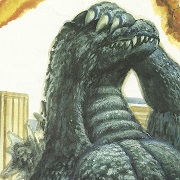|
FPyat posted:I'm looking for books that heavily cover geopolitics and diplomacy. Books that illustratively apply theoretical lenses to events would be great. I know very little about the Middle East, Africa, and South and Southeast Asia. Currently have 'From Colony to Superpower' by George Herring, three different books on the leadup to WW1, 'Monsoon' by Robert Kaplan (the guy sounds extremely controversial, but I want to give him a chance), and 'Paris 1919' by Margaret MacMillan. Would 'Diplomacy' by Kissinger be good for me? Dreadnought by Robert K. Massie has quite a lot on pre-WW1 Great Power diplomacy, including some pretty interesting biographies of hilariously stuck up British and German civil servants. Such loveable workaholics!
|
|
|
|

|
| # ? May 20, 2024 09:45 |
|
oscarthewilde posted:Dreadnought by Robert K. Massie has quite a lot on pre-WW1 Great Power diplomacy, including some pretty interesting biographies of hilariously stuck up British and German civil servants. Such loveable workaholics! Dreadnought is one of my WW1 books. I just hope it has some pages devoted to France and Russia.
|
|
|
|
I would suggest that a better read would be Clark's Sleepwalkers which certainly does devote time to France and Russia. Dominic Lieven's End of Tsarist Russia (US title) focuses solely on Russia. While he loses his initial claim that everything hinged on Ukraine over the course of the book, it still offers good insight into Russian decision-making.
|
|
|
|
FPyat posted:I'm looking for books that heavily cover geopolitics and diplomacy. Charles Esdaile's Napoleon's Wars is not about the wars themselves, but the geopolitical maneuvering that went on during the war. Also seconding Sleepwalkers.
|
|
|
|
Minenfeld! posted:I would suggest that a better read would be Clark's Sleepwalkers which certainly does devote time to France and Russia. Dominic Lieven's End of Tsarist Russia (US title) focuses solely on Russia. While he loses his initial claim that everything hinged on Ukraine over the course of the book, it still offers good insight into Russian decision-making. The first third of Sleepwalkers that I read were quite illuminating. I do recall seeing a tweet somewhere saying that Clark is a pro-German revisionist, don't know enough to judge that.
|
|
|
|
oscarthewilde posted:Dreadnought by Robert K. Massie has quite a lot on pre-WW1 Great Power diplomacy, including some pretty interesting biographies of hilariously stuck up British and German civil servants. Such loveable workaholics! Another vote here for Dreadnought being great. So is Castles of Steel, the sequel. But that specifically covers WW1, still good though.
|
|
|
|
It's pretty wild that my high school library had a copy of Dreadnought in it. Can't say it's that likely that it was ever read, but I sure noticed it sitting there.
|
|
|
|
FPyat posted:The first third of Sleepwalkers that I read were quite illuminating. I do recall seeing a tweet somewhere saying that Clark is a pro-German revisionist, don't know enough to judge that. My understanding is that he gets that reputation because he says all the Great Powers share blame for starting the war instead of putting it all on Germany.
|
|
|
|
FPyat posted:It's pretty wild that my high school library had a copy of Dreadnought in it. Can't say it's that likely that it was ever read, but I sure noticed it sitting there. Iíd have check it out in a heartbeat. I remember my high school had Tolandís ďThe last 100 daysĒ and when I checked it out, I was the first person to do so in over a decade. Anyway anyone with even as passing interest in great power politics leading up to WWI should read Dreadnought. Also, I have ďSleepwalkersĒ on my Christmas list. Does it hold up? A goon a few posts up mentioned the author has a pro-German bias? *edit* Answered right as I made this post- thanks!
|
|
|
|
vyelkin posted:My understanding is that he gets that reputation because he says all the Great Powers share blame for starting the war instead of putting it all on Germany. If thatís the case itís a significantly more nuanced issue than hot takes on Twitter are going to make clear. Note that Iím firmly on the Fischer side of things but calling the other side ďpro-German revisionismĒ is a bit much. I mean, for one the Fischer Thesis is the revisionist argument. Edit: note that Fischer was arguing for German culpability. Edit 2: the issue of WW1 war guilt also gets inextricably bound up in both the legacy of and guilt over WW2, as well as Cold War realities and politics. Google the Fischer Controversy. Iím on a phone now so Iím not going to spell it all out but Iíd someone reminds me later I might grab a laptop and bang some stuff out. Edit 3: well, Fischer is revisionist from a 1960s perspective. I suppose the equal guilt option is the revisionist take in the 30s. WW2 and the post war early Cold War political order changes a lot of how that shakes out.
|
|
|
|
Christopher Clark does not acquit the Germans of responsibility for their actions per se, he takes more of a position that lays blame on Russia for being so aggressively antagonistic with AH over the Balkans with an assist from France giving them massive subsidies to build up their industry and military. Basically he believes that this was a localized Balkan conflict that blew up out of control and not a general European conflagration that just so happened to begin in the Balkans. He is against the common narrative that Europe was set to go to war over just about any flash point and that the assassination of Franz Ferdinand wasnít particularly significant in of itself. He goes into the other flash points of the early 20th century that were resolved via diplomacy to support this and does not subscribe to the idea that each one brought the continent closer to war. Which then leads him to believing that if not for the assassination the war would not have occurred because the Entente between Britain France and Russia was already being strained to the point of possibly dissolving which would have radically changed the entire diplomatic situation.
Shimrra Jamaane fucked around with this message at 19:46 on Nov 24, 2021 |
|
|
|
He focuses quite a bit on Russia, Serbia, and France. With that said, he attempts to describe how each nation's decision makers perceived their positions and that of the other powers to frame how events were shaped. It's a nuanced work that attempts to inject some agency into the narrative for all the key players.
|
|
|
|
Just found a used copy of "The Battle for Stalingrad" by Marshal Chuikov himself in local bookstore. I have already read Beevor and Craig (though at least a decade ago, probably more). I have heard that those works are partly considered flawed now because they rely on Chuikovs account, and that more modern takes have greater access to German and Russian sources. So obviously, I plan to read it with a box of salt at my side to take with it, but I am curious about what and why the flaws are in his book. Does he make his own decisions seem more brilliant? Does he overplay or underplay the strength/tactics/strategies of the axis forces? Does he give a jingoistic account, and if so is it because of who he is or is it because of political/cultural pressure (I realize that may be difficult to ascertain, but like maybe he changed his tune after Stalin had been dead a while)? Would also be interested to know if there are large factual errors or myths, or even if cold war context plays a strong roll. I know that's a lot of questions, so thanks to anyone who can answer, and I'll be sure to give my own impressions after I read it.
|
|
|
|
Well like many post war memoirs among generals, especially those that had to be written after Stalin finally died a decade later, there is embellishment and definitely a fair amount of coverup regarding their personal poor decisions at the time.
|
|
|
|
So I've recently finished Adrian Goldworthy's Philip And Alexander about Alexander the Great and his father, and followed that up with James Romm's Ghost On The Throne, about the wars that followed Alexander's death, leading up to Antigonus killing Eumenes and the Argeads being wiped out. Is there a good follow up to these about the Hellenistic Age? Kinda want to know about the rise of Seleucus or what happened to Athens and the rest of the Greeks. Preferably something on Audible since I get most of my 'reading' done on my long commutes.
|
|
|
|
Mantis42 posted:So I've recently finished Adrian Goldworthy's Philip And Alexander about Alexander the Great and his father, and followed that up with James Romm's Ghost On The Throne, about the wars that followed Alexander's death, leading up to Antigonus killing Eumenes and the Argeads being wiped out. Is there a good follow up to these about the Hellenistic Age? Kinda want to know about the rise of Seleucus or what happened to Athens and the rest of the Greeks. Preferably something on Audible since I get most of my 'reading' done on my long commutes. Well Peter Green wrote a 900 page tome on the Hellenistic Age called from Alexander to Actium but thereís no audiobook. https://www.amazon.com/Alexander-Actium-Historical-Evolution-Hellenistic/dp/0520083490 If you want something much less frustratingly academic then try Dividing the Spoils: The War for Alexander the Great's Empire by Robin Waterfield https://www.amazon.com/Dividing-Spo...199931526&psc=1
|
|
|
|
Alexander to Actium is incredibly long, but it is also the best book on the subject matter that I have in my collection of Classical history books. After reading Peter Green's work books like Ghost On The Throne felt frustratingly incomplete so I second this recommendation. But it is a lot to take in.
|
|
|
|
That does sound pretty much what I'd want, probably would have to wait til next year to start such a long book.
|
|
|
|
Anyone have any good suggestions on the Spanish-American War?
|
|
|
|
Are there any books out there which go into detail about the stories told in the margins of books being copied before the printing press? The stuff that would get added in as scribes were bored from copying words or adding their own flair to it. Every now then I see a history book that references the practice but I'm wondering if anyone has actually put together some sort of completion and explainer in a book focused on what actually got written?
|
|
|
|
nessin posted:Are there any books out there which go into detail about the stories told in the margins of books being copied before the printing press? The stuff that would get added in as scribes were bored from copying words or adding their own flair to it. Every now then I see a history book that references the practice but I'm wondering if anyone has actually put together some sort of completion and explainer in a book focused on what actually got written? I haven't read them but I found a couple of books on the subject: Image on the Edge: The Margins of Medieval Art by Michael Camille and Marginalia: Readers Writing in Books by HJ Jackson.
|
|
|
|
I'm looking for a book that chronicles the Bosnian war. It happened when I was still a kid, and I know nothing about it. I just have Sarajevo Blues, which I read for college.
|
|
|
|
Misha Glenny's The Fall of Yugoslavia is a good overview, but it was written pretty close to the actual events and most of it only covers until '92. If you're looking specifically for The Bosnian War of '92-'95, I'm not aware of one. There's two documentary series I watched not long ago that very pretty good: The Death of Yugoslavia and The Fall of Milosevic.
|
|
|
|
Almost finished with A Stillness at Appomattox by Bruce Catton, I have to say that out the three books in the trilogy, it's not the one I'd have picked for a Pulitzer Prize. The first book Mr Lincoln's Army really shined in a way that the two later books don't.
|
|
|
|
Hannibal Rex posted:Misha Glenny's The Fall of Yugoslavia is a good overview, but it was written pretty close to the actual events and most of it only covers until '92. If you're looking specifically for The Bosnian War of '92-'95, I'm not aware of one. My library has Fall of Yugoslavia, and a DVD of the PBS docu The Trial of Ratko Mladic, I figure that should satisfy my interest in the short term. The documentaries probably exist online in one form or another as well. Thanks for the recommendations.
|
|
|
|
FPyat posted:I'm looking for books that heavily cover geopolitics and diplomacy. Books that illustratively apply theoretical lenses to events would be great. I know very little about the Middle East, Africa, and South and Southeast Asia. Currently have 'From Colony to Superpower' by George Herring, three different books on the leadup to WW1, 'Monsoon' by Robert Kaplan (the guy sounds extremely controversial, but I want to give him a chance), and 'Paris 1919' by Margaret MacMillan. Would 'Diplomacy' by Kissinger be good for me? Robert Kaplan is a great writer, so even though I disagree with him, worth reading him. I'd check out Adam Tooze's the Deluge, which is an account of the end of WW1 and the geopolitics in the ensuing period. Charles Emmerson has a couple of books on this period (one is on the pre war period, one on the end of the war) which you also might enjoy.
|
|
|
|
Any good single volume books about the Seven Years War in Europe? Anytime I search for books about the 7YW I just get results about the conflict in America.
|
|
|
|
This is neither here nor there but I find it entertaining that the Seven Years War is taught here in Canadian Junior high school, and yet I don't recall the European portion of the war being mentioned at all. I mean it's not crucial to the narrative I suppose but still.
|
|
|
|
PittTheElder posted:This is neither here nor there but I find it entertaining that the Seven Years War is taught here in Canadian Junior high school, and yet I don't recall the European portion of the war being mentioned at all. I mean it's not crucial to the narrative I suppose but still. That's my memory of learning about the "French and Indian War" in US middle school. Only the New World aspect of the war being brought up.
|
|
|
|
Chairman Capone posted:That's my memory of learning about the "French and Indian War" in US middle school. Only the New World aspect of the war being brought up.  at least in middle school. When I did AP Euro they taught about the 7YW and the teacher basically said "remember all that French and Indian stuff? Yeah, that was the N. American theater of this bigger war." at least in middle school. When I did AP Euro they taught about the 7YW and the teacher basically said "remember all that French and Indian stuff? Yeah, that was the N. American theater of this bigger war."
|
|
|
|
No. 1 Juicy Boi posted:Any good single volume books about the Seven Years War in Europe? Anytime I search for books about the 7YW I just get results about the conflict in America. There really isnít which is nuts.
|
|
|
|
Any books on the Civil Rights movement that center how people who weren't activists or politicians felt about it? If anything, reading the freakouts of hardline racists as their dominant order gets torn down would be entertaining. I've found one oral history of the period but it seems to be all interviews of participants.
|
|
|
|
Shimrra Jamaane posted:There really isnít which is nuts. Yeah if you want a good overview of even part of the European theater your only real option is, like, biographies of Frederick the Great
|
|
|
|
FPyat posted:Any books on the Civil Rights movement that center how people who weren't activists or politicians felt about it? If anything, reading the freakouts of hardline racists as their dominant order gets torn down would be entertaining. I've found one oral history of the period but it seems to be all interviews of participants. You'll probably like Jason Sokol's There Goes My Everything.
|
|
|
|
Fighting Trousers posted:You'll probably like Jason Sokol's There Goes My Everything. Excellent, thank you.
|
|
|
|
This is probably way too narrow, but is there a good history of Fraxinetum out there?
|
|
|
|
SubG posted:This is probably way too narrow, but is there a good history of Fraxinetum out there? I don't know about a book, but I found a 55 page article about Fraxinetum that seems to be generally about the site and its history, and not about one particular aspect: https://www.academia.edu/3537846.
|
|
|
|
Could anyone recommend any books about James Madison and John Adams? Biographies would be fine but I'm looking for something that focuses on their beliefs and policies. Academically minded types of books are totally fine, too. I'll take anything really as long as it's critical of them and not just a book that fellates the founding fathers. You're all wonderful - thank you.
Mukulu fucked around with this message at 05:31 on Dec 31, 2021 |
|
|
|
Is there a good book about the decipherment of Egyptian hieroglyphs? I know very little beyond Champollion and the Rosetta Stone and Iíve always been curious for more details and about how the field continued developing after.
|
|
|
|

|
| # ? May 20, 2024 09:45 |
|
Do you mean something like A World Beneath the Sands?
|
|
|



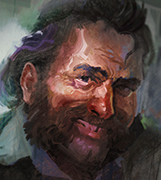



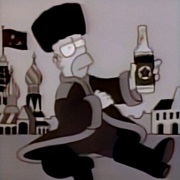



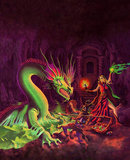










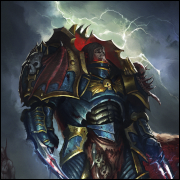

 Yes, it's like a lava lamp.
Yes, it's like a lava lamp.
